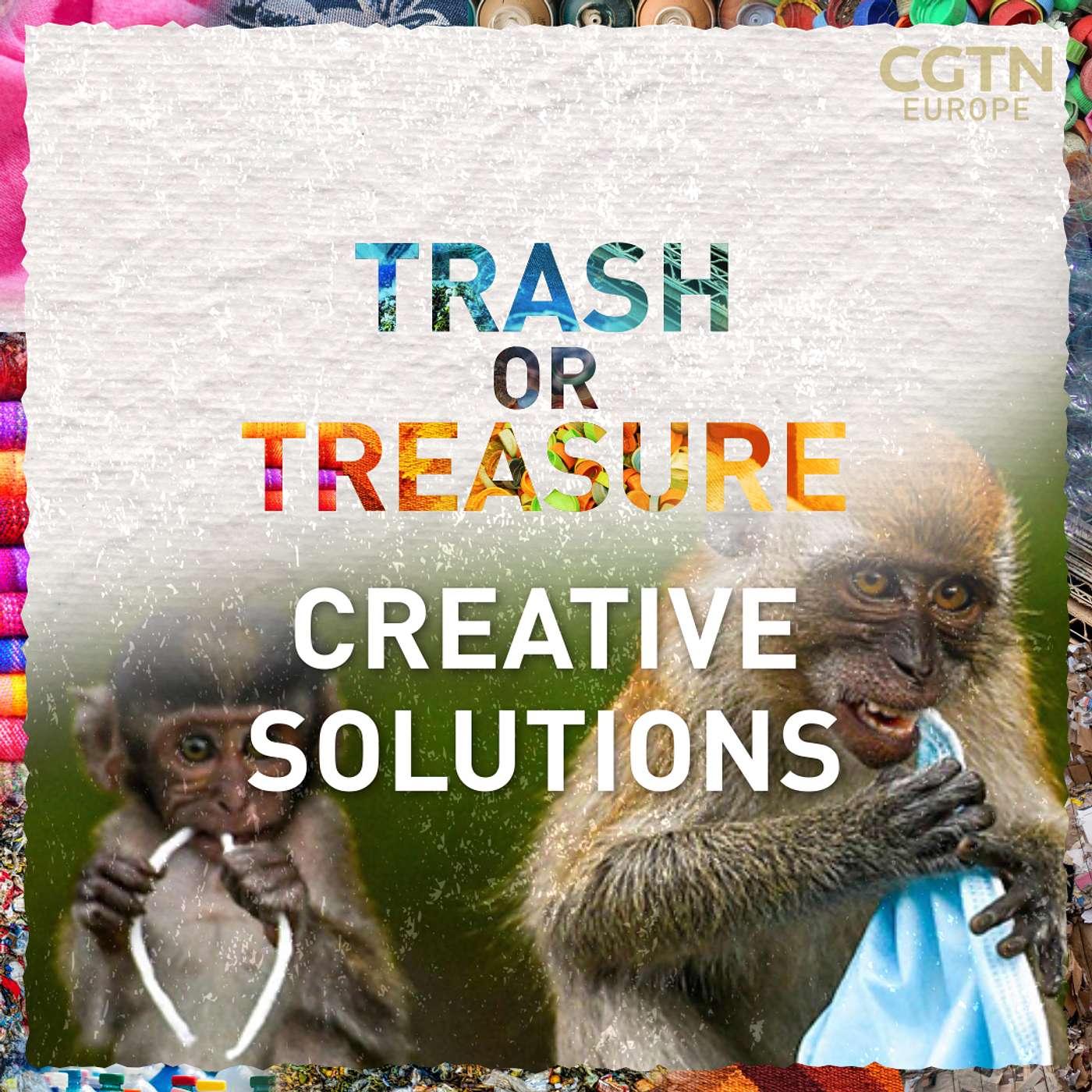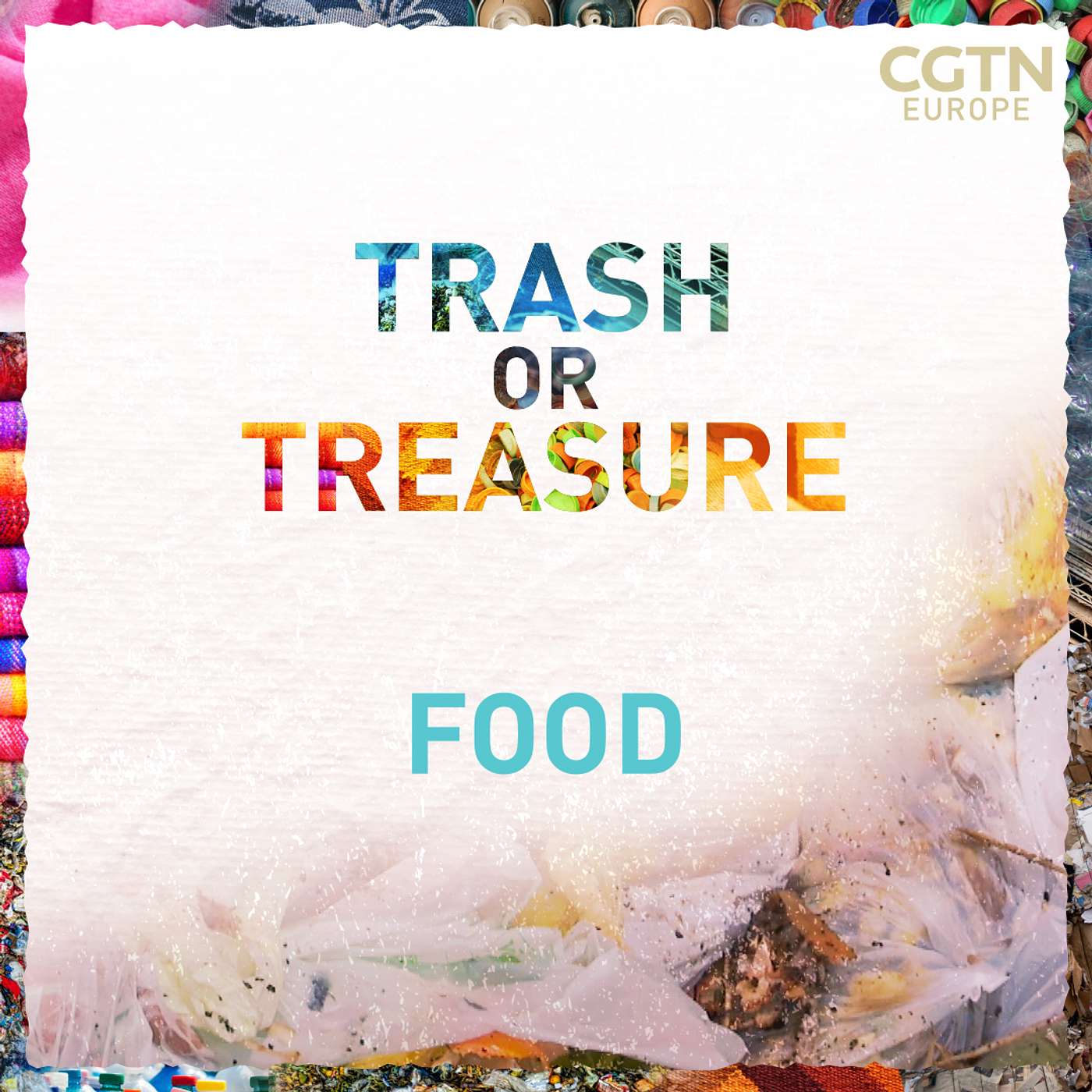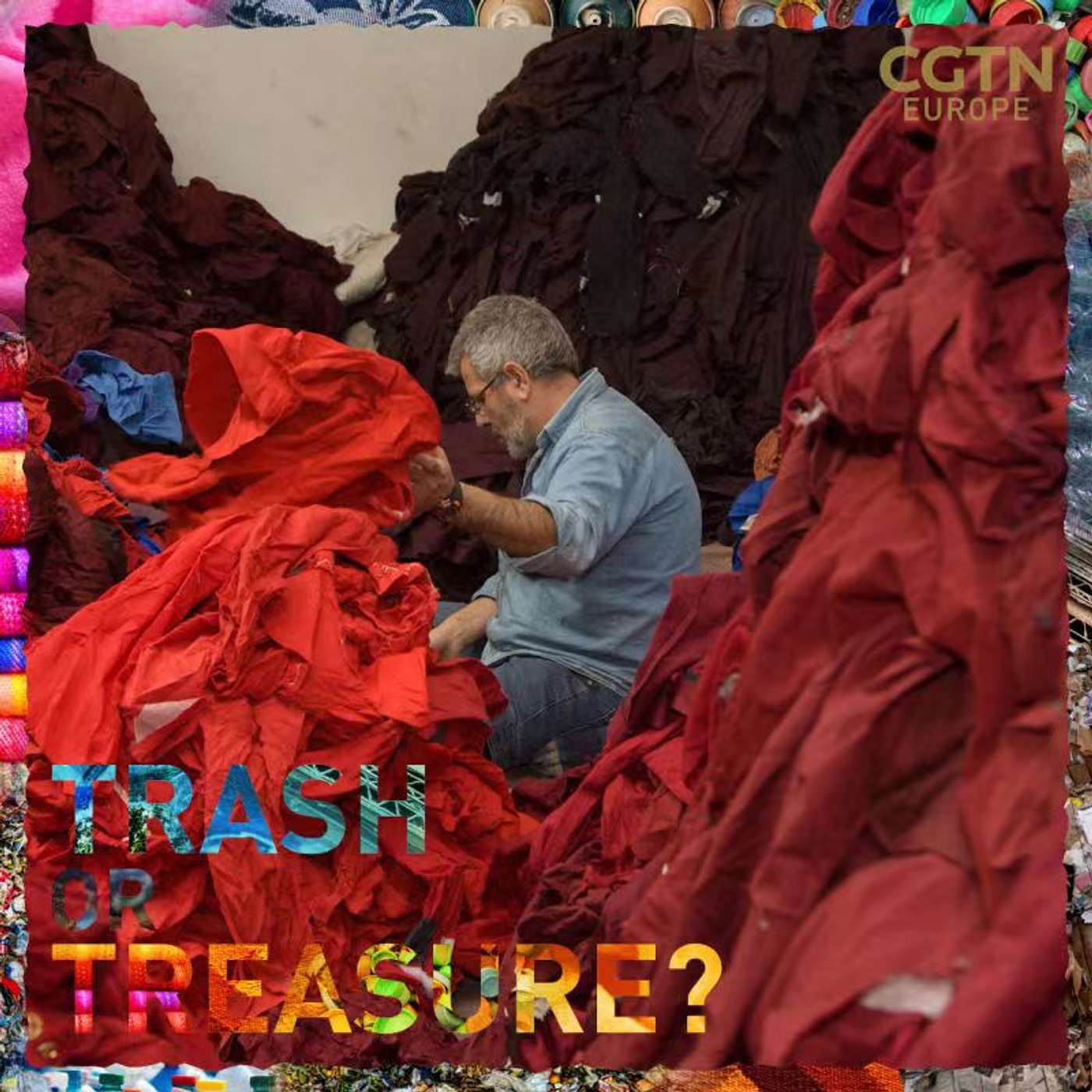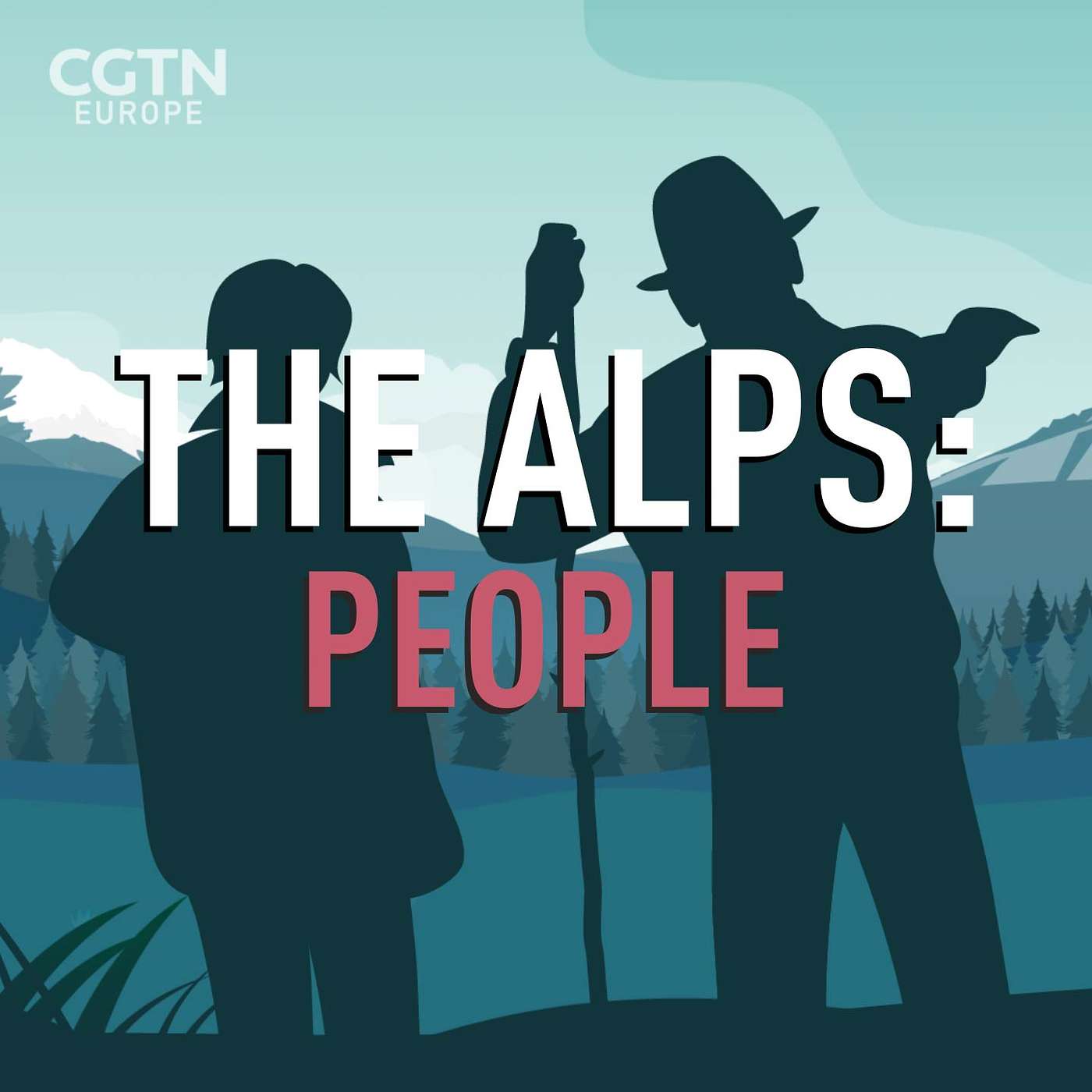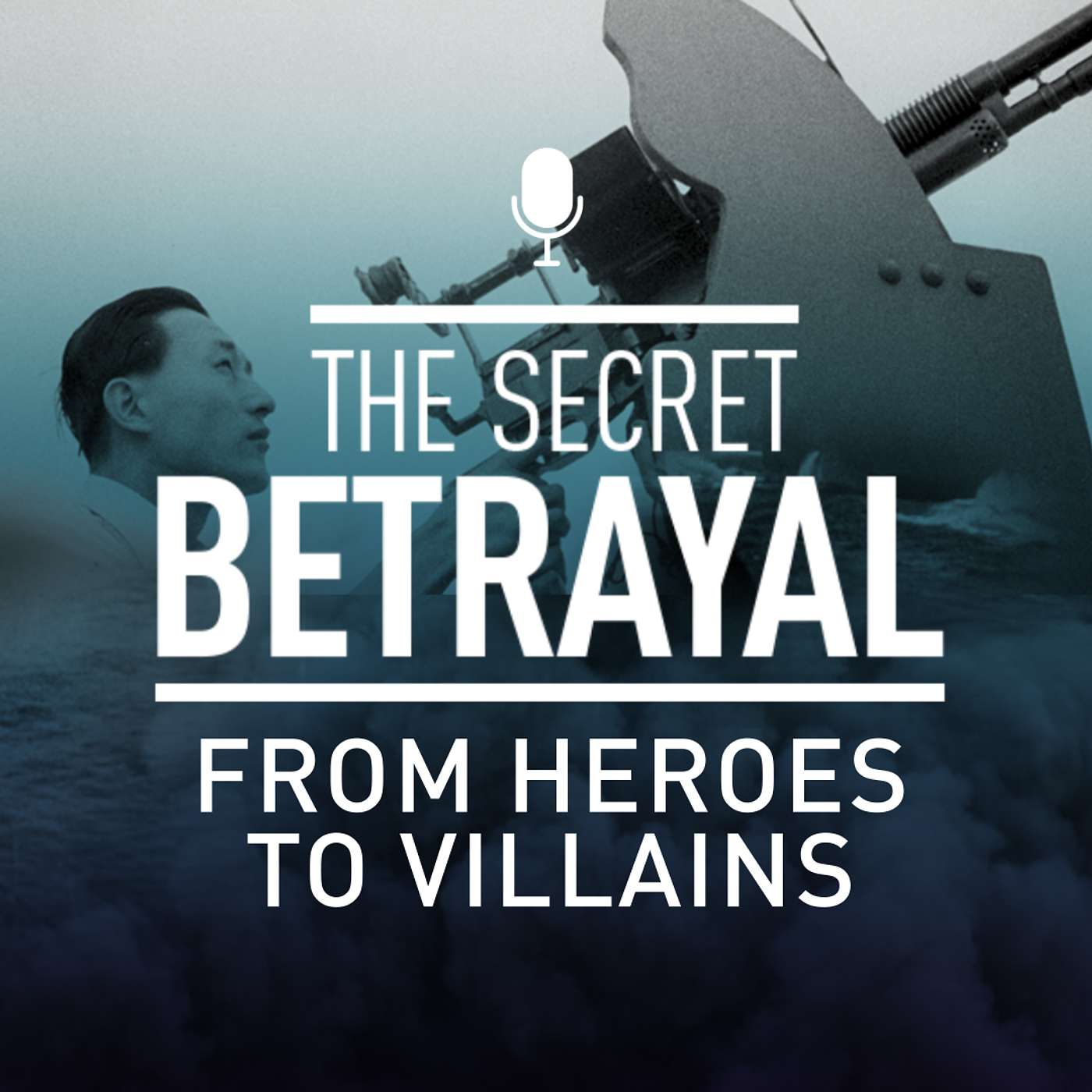Discover This Way Forward
This Way Forward

29 Episodes
Reverse
The World Bank estimates that without urgent action, by 2050 we will be generating 3.4 billion tonnes of waste globally. So what can governments and citizens do to curb this trend? And whose responsibility is it? Our Trash or Treasure special will investigate which European countries are the biggest waste creators, which are leading the way in waste disposal and recycling – and we meet the people that are coming up with some surprising, innovative solutions to a Europe-wide problem.In this, the first podcast, our correspondents from across Europe get up close and personal with their own garbage bins and make uncomfortable revelations about their own consumption. Then we take them on a journey of discovery to ask: If it isn’t recycled, where does our waste go? The answers take them to illegal dumps, incinerators and landfills across Europe. From the innovations in waste disposal which have earned Vienna the title ‘Greenest city in Europe’ to the eco disaster unfolding at a Bosnian dam, we look at the best and worst of Europe’s waste disposal solutions.
Trash or Treasure is a season of podcasts finding out what happens to all the stuff Europeans throw away – a surprisingly fascinating journey around the rubbish heaps of Europe, looking at some of the innovations helping us to reduce our waste and even turn it into something useful. In this episode we’re taking a closer look at where our waste goes when we’re hoping it’s going to be recycled. When we throw our plastics, metals or paper into a special recycle bin, we expect it’s going to end up being reprocessed and ultimately reused… we hope. But waste disposal is a lot more complicated than many think – especially when it comes to plastics. For decades, plastics have been changing the way we live; we now see it all around us, but we also hear a lot about the destruction it causes if not disposed of properly. CGTN Europe correspondent Natalie Carney asks a very simple question – 'What happens to plastic waste?' – which leads her on a trail to unravel the mysteries of the plastics chain. She discovers that plastics are not as recyclable as we all hoped and that their use is still on the rise across Europe. She also finds out how new legislation to ban single-use plastic in Germany will impact that country's waste problem.
Recycling – and reuse – has been practiced in some European countries for decades. And that has given rise to some brilliant creative thinking as to how to lessen the waste burden, and to use the things that some might see as useless in whole new ways.In this episode, we've scoured the continent to bring you some of the most ingenious new solutions for reusing and recycling waste as we unveil the best ideas for turning trash into treasure – from firehoses being turned into handbags, via PPE being used in road surfacing, to the band that has played the Albert Hall making music with waste materials.
The UN estimates that each year, we throw away almost a billion tonnes of food. That's an almost inconceivable amount, and one which has given rise to increasing innovation and activism. It's not just about not emptying our plates or clearing out our fridge before the food goes off: one estimate has it that a third of perfectly edible food is thrown away at source simply because it looks misshapen or unappealing.In this episode of Trash or Treasure, we speak to zero-waste consumers, change-seeking chefs and 'dumpster divers' who save good food from supermarket dustbins; investigate apps which redistribute restaurant-surplus food; and visit the anaerobic digestion plant turning waste food into fuel and fertilizer.
Clothes. We all wear them. That's billions of items being worn every day, billions of items being made each year – and billions of items being thrown out.The environmental impact is huge – in the UK alone, 300,000 tonnes of textile waste ends up being sent to landfill each year. And that is a small fraction of the worldwide figure. Less than one percent of material used to produce clothing is recycled into new clothing at the end of its life.In this episode of Trash Or Treasure, we meet all sorts of innovators, entrepreneurs, campaigners and businesses that have dedicated their lives to raising awareness, reusing or recycling clothes. We travel to Italy to explore a very fashionable way to recycle our clothes. Could Prato represent a model for sustainable fashion? No, it's not a brand name: This small city in Tuscany has built its fortune on transforming old scraps into new clothes, particularly knitwear and wool – and it could show the way for fashion, one of the world's most polluting industries, to clean up its act. We follow the clothes chain to Africa, where for decades Europe has sent its second-hand clothes – but if that's a solution, why are African countries considering banning imports of second-hand clothing?
Death is the final act of our lives, and it can be environmentally devastating: every cremation uses the equivalent of about 40 backyard-barbecue propane canisters and creates one tonne of carbon dioxide, while traditional burials eat up the land and can leach chemicals into the soil. In this episode, we explore the increasing choice of alternative methods that are appearing for disposing of our mortal remains – from chemical-free 'natural burials' through organic reduction and 'water cremation' to burials at sea and even freeze-drying. But what are the ethical and ecological pros and cons of each method?
As we move into 2021, our CGTN Europe correspondents talk to us about an unprecedented year of change.. COVID-19 changed our lives forever, and across Europe each country experienced it differently. We speak to five reporters who were on the frontlines reporting on the virus, and ask them how they tried to make sense of an epidemic that would change the world forever. We start with Toni Waterman who arrived in Brussels in March. She explains how eerie the empty streets of Brussels were - and how she tried to cover the pandemic [01:13]. Ross Cullen arrived in Paris in January a few weeks before the coverage of the virus became all-consuming. Ross explains what it was like to visit Italy during the height of the lockdown in March and how the country struggled to deal with COVID-19 [03:02]. In Spain, Rahul Pathak covered how the pandemic changed the way cities looked and operated. He recalls where he was when he started to feel the impact of the virus and how Spanish culture had to adapt to new restrictions [04:27]. Rahul also reflects on how the virus helped to bring political parties together and cooperate [15:07]. In the UK, Nawied Jabarkhyl tells us what it was like during the pandemic and how difficult it was to find positive news stories while new COVID-19 infection numbers kept climbing [14:09]. Linda Kennedy in Budapest, tells us about reporting on COVID-19 in Hungary’s capital city and the controversy over vaccines as many Hungarians want to have a greater say in which vaccine is delivered in their country [17:35].
Alpiner Johannes Pleschberger continues his journey through the Alps in meeting some of the incredible people who live and work in the mountains. Alpine people speak a range of different languages, have various traditions and faiths - but they’ve got lots in common. With some of the highest life expectancies in the world, healthy alpiners enjoy heart-pumping activities in the mountain air all year round. We meet Slovenian Tomo Sarf who’s still running up mountains in his sixties. Some of the best cheeses in Europe are made in the alps including Emmentaler, Raclette and Gruyere – but you may not have tried Trnič, a delicious Slovenian cheese made by shepherds as a token of love for their sweethearts. The people of the alps also enjoy fantastic festivals. If you thought Halloween was scary - you haven’t met Krampus. He’s a half-goat, half-demon who scares naughty children into behaving better the day before St Niklaus’ two weeks before Christmas.. Alpiners dress up in incredible painted masks, clang the loudest cow bells and cause mayhem in their towns and villages once a year.
Join native Alpiner Johannes Pleschberger on his journey through this incredible mountain range at the heart of Europe. In this 30 minute podcast Johannes investigates some of the extreme changes facing the Alpine landscape. One of the most noticeable effects of climate change is the shrinking of the glaciers. Researchers says that since 1850, alpine glaciers have lost over half their volume. At the Mer de Glace in the western Alps they’re trying to protect the glacier and educate people about the changing landscape. We visit a restaurant which has shifted from one country to another because of a melting border. Pastureland in the alpine foothills is shrinking too, as spring arrives three to four weeks earlier than it did sixty years ago. Farmers are learning new methods about how best to graze their cattle as the pastures move higher up the mountains, keeping alpine traditions alive. As storms increase in intensity we find out how fallen timber in the Italian Alps has been saved to help produce 30,000 pianos, violins and harps in the style of Stradivari.
Zi Lan Liao is one of the leading exponents of Chinese music. Her busy career on the international concert circuit has resulted in her being the most widely heard and best appreciated performer on the gu zheng worldwide. Her work includes Oscar-winning scores and modern fusion music – but her real passion is passing on her musical heritage to the British Chinese children of the Pagoda Arts Centre in Liverpool. In the late 1970s, Liao Zilan’s musician father took the life-changing decision to become a cultural officer in Liverpool. Liao and the family relocated from Guangzhou – but Liao continued to play the guzheng, or Chinese harp. A globe-leading musician experimenting with fusing Chinese and Western styles, she has performed at the Royal Albert Hall, toured internationally and recorded music for Hollywood film scores – but she still helps local children to get hands-on with Chinese musical instruments. “To actually see young people playing Chinese music live is something new to them – all they can imagine is seeing this instrument on the television but not be able to have hands on it,” she says. “And so they really think it's amazing that Liverpool children can, if they want, they can come and learn it.”Presenter: Louise GreenwoodProducer: Elizabeth MearnsSound Editor: Terry WilsonSeries Producer: Elizabeth Mearns
In this series of podcasts, the story of how a brutal policy of forced repatriation caused thousands of Chinese men to disappear from Liverpool at the end of World War II. This policy, orchestrated by the British government, would leave families traumatised and the community broken.In 1866, shipping group Alfred Holt & Company was founded in Liverpool. It quickly became one of the UK’s biggest shipping merchants, building established trade routes between Liverpool, Shanghai and Hong Kong. Its major subsidiary, the Blue Funnel Line, carried cotton, tea and silk, and relied heavily on Chinese sailors.Over time, many of these seamen and traders settled in Liverpool, and on the eve of World War II the city was home to a thriving British-Chinese community of thousands. This harmony was short-lived as the end of the war saw a mass deportation of Chinese men.We speak to the children and grandchildren of those men whose childhoods were blighted by the loss of their fathers and the secrecy and misinformation around the policy. We also speak to Rana Mitter, an Oxford University historian specializing in modern China, about the role of Chinese sailors in the British Merchant Navy and what these family members faced on their return to China.Presenter: Jamie OwenProducers: Elizabeth Mearns, Mark AshendenSeries Producer: Simon Morris
Climate experts speaking to CGTN claim the COVID-19 outbreak was in part caused by environmental damage. They point to the believed origin of the virus and the breakdown of natural boundaries between humans and animals.In this final edition of Notes on a Pandemic, we look at the impact the coronavirus has had on the global environment. We examine the dramatic fall in CO2 emissions during lockdown, which caught even climatologists by surprise and ask if the pandemic may have handed policymakers a window of opportunity for long-term change. We look at the future of both fossil fuels and renewable energy sources in aiding the world economy, as it begins its slow recovery. Notes on a Pandemic is written and presented by Louise Greenwood. Additional production by Katherine Berjikian
Travel and tourism has felt the full impact of the COVID-19 crisis.The lockdown in March led to mothballed planes, closed airports and quarantined cruise liners around the world. For some, it’s prompting a rethink of the entire travel industry, at a time when many top destinations were operating at maximum capacity.In this podcast we examine what holidays in the future may look like, and how better to balance the needs of supply and demand as tourism continues to rise along with income in new markets.Travel and Play is the fifth episode in the Notes on a Pandemic series from CGTN’s This Way Forward.Notes on a Pandemic is written and presented by Louise Greenwood. Additional production by Katherine Berjikian
Whether you are the boss in a company employing thousands or the newest hire in the office, COVID is changing how all of us earn a living. The lockdown has seen millions working remotely from home, many benefiting from government support packages to keep their jobs open . Economists are warning that the long term furlough in workers risks exacerbating inequalities in the jobs market, while issues of stress and isolation as well as the strains of childcare have taken their toll. For others however, lockdown has given a unique opportunity to create the career of their dreams, away from the politics of office life. Notes on a Pandemic is written and presented by Louise Greenwood. Additional production by Katherine Berjikian
In the third episode of our new podcast series Notes on a Pandemic, CGTN Europe examines how workplaces are adapting to the new culture of social distancing.We hear how the biggest office space in Scotland has had to change mid-construction to accommodate the demands of post-pandemic working. And we speak to the creators of new tech devices that are helping existing workplaces stay open. We also visit one London animation studio that took the radical decision to completely close its new headquarters, just days ahead of the UK lockdown. And, crucially, we ask if the office as we know it has a future at all?Notes on a Pandemic is written and presented by Louise Greenwood. Additional production by Katherine Berjikian CORRECTION: An earlier version of the podcast stated that the cost of the Virgin Money headquarters in Glasgow was $3.5 million. The cost of the development has since been corrected to $250 million in the podcast. An earlier version of the podcast also said the building will be the biggest single office space in Scotland. This has been corrected to say the building will be the largest office building in Glasgow.
As Europe slowly emerges from lockdown it’s becoming clear the pandemic has left a legacy that will mean long-term changes to business, the world of work and the global environment. But despite the devastating toll COVID-19 has taken, might it also have handed us the opportunity to build a fairer, more sustainable future, based on innovation, cooperation and technological progress?In the second of CGTN's new podcast series Notes on a Pandemic we look at how businesses large and small, and individuals from an array of backgrounds have come together to create a collective response to the pandemic.CGTN Europe speaks to the hospital architects tasked with the challenge of creating an extra 22,000 acute care beds in the UK in a matter of weeks. For the Nightingale Hospital project, professionals from the building industry worked alongside healthcare staff and the military to pull off the mammoth task.Elsewhere, we hear from a 3D printing firm in Czechia that designed a face-shield template that went viral around the world after being published on the internet.Notes on a Pandemic is written and presented by Louise Greenwood.The production assistant is Katherine Berjikian.
CGTN's new podcast series "Notes on a Pandemic" looks at how business, science and people have risen to the challenges of COVID-19, bringing us solutions which will change all our futures.Science rules - Since the first cases of COVID-19 were reported, the world has looked to the scientific community to find an effective treatment. The top minds in the pharmaceutical industry have been working at full speed on possible medical solutions - and the hunt for a vaccine that would normally take years has been fast-tracked to a matter of months. In the first in CGTN’s new podcast series "Notes from a Pandemic", we speak to medical professionals that were frontline in the 2014 Ebola outbreak in West Africa to find out how previous pandemics have informed our response to COVID-19 and ask if lessons from previous pandemics in the developing world were properly learnt. We examine how the pharmaceutical sector is being reshaped by the many agencies involved in the search for a cure and by the billions being spent by governments, private sector providers and philanthropic donors. And we hear from some of the world's top virologists and public health experts as they explain why COVID-19 has proved to be such a challenge."Notes on a Pandemic" is written and presented by Louise Greenwood.The production assistant is Katherine Berjikian.
In April 2023, Andrea Papi became the first Italian in 150 years to be killed by a bear. Mauled while jogging, he became an unwitting victim of a well-meaning EU-funded rewilding program designed to reintroduce bears to the Italian Dolomites. This podcast explores where responsibility lies for his death and how it has exacerbated a growing divide in Italy and beyond about the wisdom, safety and management of rewilding large carnivores.Presenter: Johannes PleschbergerProducers: Elizabeth Mearns, Alice CastleSound Editor: Terry WilsonSeries Producer: Elizabeth MearnsSfx: Life UrsusSound Editor: Terry wilson
In this podcast, meet Uganda’s first wildlife vet and expert on mountain gorillas Gladys Kalema-Zikusoka. She’s not your average vet, her work has brought back Uganda’s wildlife from the brink of disaster and her winning formula is being adopted across Africa but this is just one of her many achievements. She says:‘I would like to be remembered as someone who went outside their comfort zone to change the world and somebody who was willing to challenge societal norms and cultural barriers and as somebody who championed a new way of promoting conservation’.Hear her extraordinary story here.Presenter: Paul BarberProducer: Sarah ParfittSound design: Terry WilsonSeries Producer: Elizabeth MearnsTeam Gorilla was written and performed by GasuzaGorilla natural sound: Nick PennyAdditional audio clip: Carla Delaney
Zoë Reed’s English mother Susan met her Chinese father KCSun at college in the late 1940s. He had been brought over as the first evermature Chinese student funded by British United Aid to China; she wasone of only three women – from the cohort of 103. “She had a pretty good choice of which young man to fall in love with and told me there was a chap from Iceland she quite liked,” smiles Zoë. “But it was my father from China with whom she fell in love. They had a strong romance together.” A two-year affair ended when KC returned toChina... not knowing Susan was pregnant.Initially told her father was dead, Zoë eventually discovered the truth and started a written correspondence, but didn’t meet him in person until her 46th birthday. They met under the huge flag in Beijing’s Tian-anmen Square, and Zoë finally connected with a long-minimized part of her heritage. Having built a personal bridge, she now helps others to do similar – as part of the Society for Anglo-Chinese Understanding (SACU). Having joined as an ordinary member, she was persuaded to become its chair in 2009. SACU’s objective is to build friendship and understanding between the peoples of China and Britain, she explains: “Particularly, an education charity – to educate the British public about all things to do with China and the Chinese.” She has helped to build up SACU’s profile at a crucial time, amid growing Sinophobia in certain sections of society. “As the West has gotten more critical of China, I think the interest in SACU from British people who actually don’t think that’s the right route has gotten stronger,” she says. “We’ve got a growing number of people that are joining SACU, and I’m very excited that there’s a whole number of younger people.”Presenter: Louise GreenwoodProducer: Sarah Parfitt Sound Editor: Terry WilsonSeries Producer: Elizabeth Mearns




